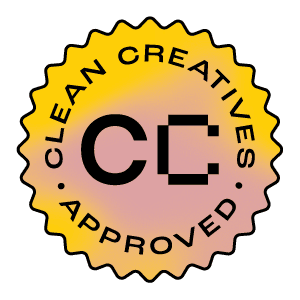How to Find an Ethical Marketing Agency
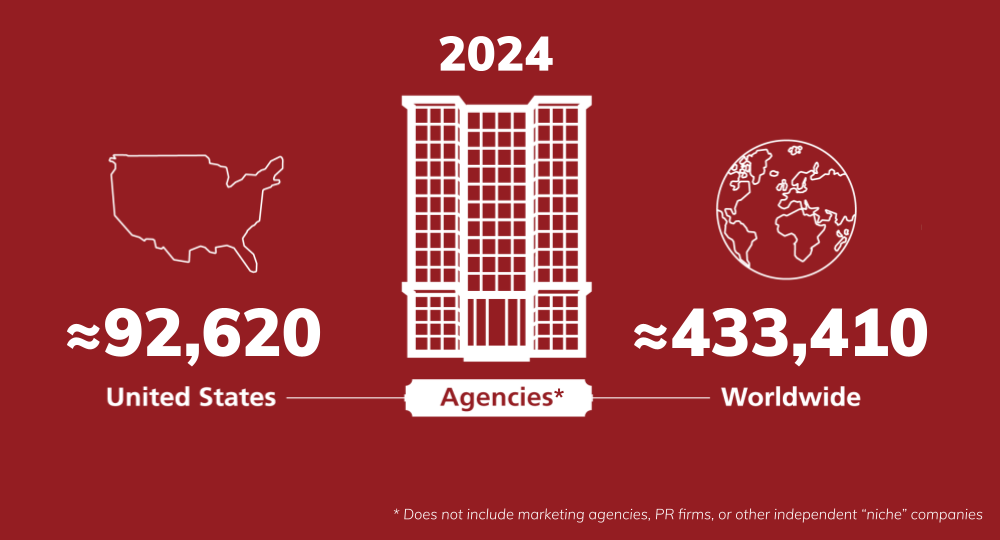
In this guide, we cover how purpose-driven organizations can find an ethical marketing agency partner in an often confusing industry landscape.
If you have ever tried to hire a marketing agency, you know how challenging and time-consuming it can be. You have hundreds of thousands of agencies to choose from. Unfortunately, not all agencies are created equal:
- Our industry is largely unregulated with no universally accepted ethical guidelines. This often drives unclear communication and varying quality standards for work delivered.
- Plus, complicating an already confusing process, agencies often specialize in specific disciplines, like UX design, web development, analytics, or media buying—topics potential clients often know very little about.
- Also, the process includes many stakeholders, a lot of time, and often represents a large financial investment for your organization. You want to make the right decision.
With that in mind, how do you find a good agency fit that you can rely on to prioritize ethical behavior? For this guide, we’ll go beyond the RFP to share how you can forge a successful partnership with an ethical marketing agency whose values are aligned with your own.
First, a Few Points About Our Industry
Advertising is a blanket term for an industry that includes all sorts of agency types. Consider these industry statistics:
- Worldwide, advertising is an $800 billion industry that employs nearly two million people.
- There are over 400,000 agencies around the world, nearly 90,000 of which are headquartered in the United States.
- This does not include independent marketing or digital agencies (like Mightybytes), PR firms, or other “niche” agencies. Hence, the total number of agencies worldwide is probably much larger than the figures above.
So, where do you start? You are spoilt for choice, but that’s also part of the problem.
Greater Risks for Purpose-Driven Organizations
Purpose-driven organizations—like nonprofits, government agencies, Certified B Corps, and other social enterprises—have even more compelling reasons to prioritize finding an ethical marketing agency. A poor choice could undermine your reputation, or worse, get you into legal trouble. With this risk thrown into the mix, the process of vetting an agency partner is even further complicated:
- Some advertising companies invade people’s privacy, misinforming some communities while leaving others out of the picture altogether. Also, digital products and services they use to serve clients can undermine people’s mental health and destroy our ability to concentrate.
- Plus, marketing and advertising use huge amounts of energy, are major drivers for climate change, and many agencies regularly run greenwashing campaigns.
- Also, our privileged industry often expands the divide between those with access to digital skills and resources and those without.
- Perhaps most importantly, the advertising and marketing industry has no universally accepted—or legally binding—ethical guidelines, despite numerous agencies and business leaders calling for our version of the Hippocratic Oath for years now.
Industry watchdogs increasingly call out this behavior in both agencies and their clients. Some also advocate for stricter laws to address many of the issues above.
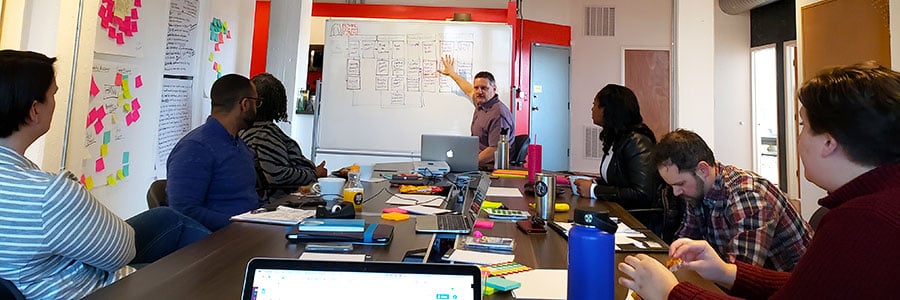
What Constitutes an Ethical Marketing Agency?
It’s obvious that there is a need for ethics to play a much larger role in business, design, and development than is currently the case in most corporations. The demand for ethical transformation is evident. But it won’t happen without changing corporate culture first.
— The Ethical Design Handbook, p. 73
Most agencies will tell you that they’re the ‘best fit’ for your campaign or project. A few might suggest you look elsewhere or maybe even provide a referral.
However, none will tell you they’re unethical, irresponsible, or that they don’t give a shit about their clients. They’re in advertising and marketing! It’s literally their job to tell you how great they are.
Conversely, ethical marketing agencies and those that practice more sustainable digital marketing have systematized the process of responsible decision-making in how they conduct business. They consider stakeholders, weigh the consequences of their actions, and measure and report upon their impact. More importantly, they focus on continuous improvement. And they do it all in public, out in the open, for everyone to see.
In this post, we focus on two key areas to consider when vetting potential agencies:
- Process and Experience: Does the agency have the foundational experience and knowledge to be a good partner for you?
- Policies, Practices, and Partners: Has the agency implemented ethical policies and practices within their operations and partnerships?
Depending on your industry, you might choose different questions than those below. However, this list covers many common mistakes we’ve seen clients make when choosing an agency partner.
Foundations: Agency Process and Experience
The foundational information below will help you vet a potential partner’s experience as relevant to your needs. It should also reveal details about an agency’s ethical commitments.
1. What’s the Agency’s Track Record?
You’re going to review any potential partner’s website to learn more about them. Familiarity with your industry and type of project is, of course, very important. A good agency will showcase their best work and tell the company’s story in a meaningful and compelling way. That’s pretty straightforward.
However, ethical agencies will also share how they prioritize accessibility and incorporate sustainability principles or digital responsibility practices into their process, for example. Don’t stop at their Portfolio and About pages. Take time to review their blog and internal site pages as well. These will reveal more about what it’s really like to work with them and how they fold ethical practices into their work.
Their website should also include a rich portfolio of case studies that show how they have solved similar problems for similar clients. These case studies should showcase ethics and responsible decision-making throughout.
In vetting conversations, ask the following questions of potential partners:
- How long have you been in business?
- Have you successfully executed projects similar to ours?
- Which case studies highlight this expertise?
- Do you understand our industry? How deeply?
- How do you prioritize accessibility, data privacy, and other legal requirements in your work?
- Would you mind sharing any case studies or content that you think is relevant to our needs?
These questions are probably pretty obvious. However, you need to know this foundational information first in order to make better decisions regarding an ethical partner.
2. Can They Work Within Your Budget?
Next, can the agency provide a solution that’s within your financial constraints? Many marketing agencies might say they can work within your budget. However, if a potential partner isn’t asking clear questions about budget transparency, capacity, project priorities, and related topics right up front, there’s a good chance they might not be as experienced as they claim.
Plus, many agencies will try to compete on price vs. value, experience, or other criteria. To the uninitiated, this might seem like a good idea. However, would you choose a surgeon based on their willingness to perform the cheapest triple bypass procedure? Probably not.
Transparency and honesty take priority here. Frank, open conversations about budget and timing parameters can help you better gauge how the relationship will work.
Questions to consider:
- Can you work within a budget range of (insert criteria here)?
- Do you have flexible pricing options?
- Can you tell me about a project you did that’s similar to our budget and size?
- What’s your process for keeping projects on budget?
- What are your options for ongoing retainers?
- How will you let us know if a deliverable runs the risk of going over budget?
- Similarly, how will you keep us up to date on budget utilization as our work together progresses?
A good agency partner will document processes to show specifically how (or if) they can work within your target budget range. They’ll also have case studies to highlight similar successes.

3. Do They Have a Clear Process?
Agencies are often intentionally vague about their process. This is by design. Most agency projects require some level of custom strategy and discovery. Plus, clients don’t always have foundational prerequisites in place. These variables change how an agency might approach a project.
However, an experienced agency will show how early discovery sessions or product roadmapping workshops lead to increased trust and greater chances for shared success. They should have a clear yet flexible process that’s easy to understand and relevant to the problem you’re trying to solve.
Questions to consider:
- What does your agency process typically entail? How long does it take? How many steps?
- How does this process foster trust and transparency?
- How do you use this process to align expectations and track success over time?
- Can you show how this process has led to past successes?
4. Can They Show Long-Term, Shared Success?
Regardless of discipline or industry, conducting business increasingly relies on continuous improvement. Few organizations get it right the first time. Few projects are ever done at launch. This is especially true with large digital projects. Plus, implementing a sustainable data strategy provides great opportunities to build digital resilience and improve results incrementally. This takes time.
If the agency you’re vetting doesn’t showcase longstanding, multiyear clients in their portfolio, it could be a sign of several things:
- They only do project work, which is fine but could undermine your ability to create viable long-term success.
- They’re inexperienced, which could be challenging if your needs are complex and ongoing.
- They have a tendency to burn bridges, which should be a red flag for anyone.
Questions to ask:
- What’s your longest-running client relationship?
- How did you help them achieve desired outcomes?
- How do you help them continuously improve upon initial successes?
- Do you offer any post-launch services to support projects over time?
- Have you ever helped any clients pivot to a new direction? If so, what did that look like?
Find a partner that can show how they have helped clients meet or exceed their goals over time. This will ultimately work better for everyone.
Digging Deeper: Policies, Practices, Partners
Advertising and PR companies have had decades of warnings that their relationships with fossil fuel companies are harming their reputation and their clean clients. Until now, executives have chosen to ignore those warnings, with serious consequences for the planet and their ability to attract and retain young talent. Over 400 agencies have pledged not to work with fossil fuels because working with polluters is bad for business and bad for the planet.
— Duncan Meisel, Executive Director, Clean Creatives
An agency’s operational practices drive how they conduct business. You can also tell a lot about an organization by the company they keep. In this section, we’ll review agency policies, practices, and the partnerships they create as well as questions you should ask to gauge their ethical behavior.
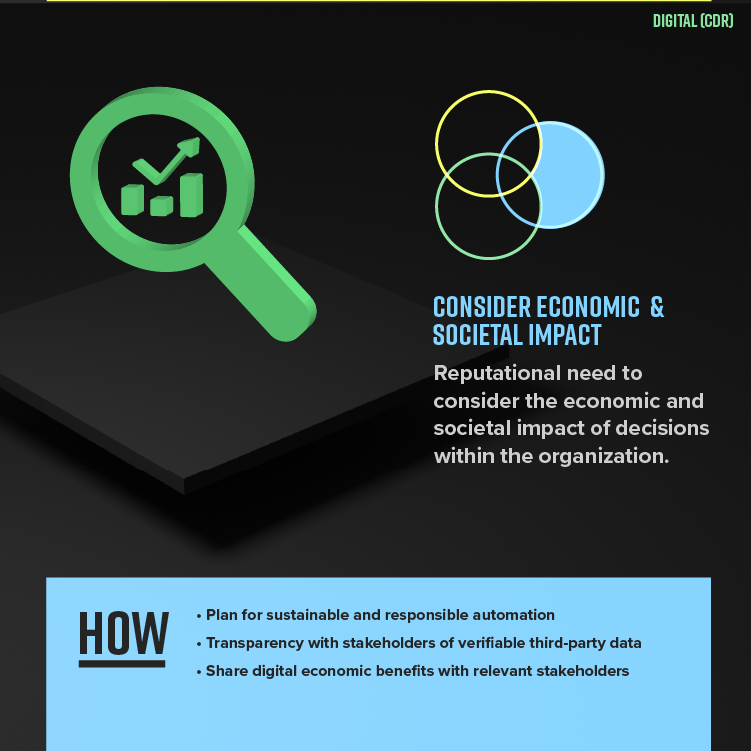
1. What’s in Their Supply Chain?
Service agencies use a wide variety of vendors, contractors, freelancers, and partners to run their businesses. This helps them better manage costs and scale or contract operations as workload changes.
However, this flexible model also allows agencies to engage in potentially unethical behavior. Some use ‘internships’ as an excuse not to pay people for work delivered. Others outsource to gig platforms or sub-contract to vendors that don’t pay workers a living wage. The popular ‘gig economy’, while flexible, often leads to irresponsible outsourcing, which advances income inequality and can promote discrimination.
On the other hand, ethical agencies will share the economic benefits of their work by providing assistance—often in the form of healthcare, insurance, flexible scheduling, retirement planning, or other benefits—to prioritize stakeholder well-being.
Also, some ethical marketing agencies have clear policies and practices to vet potential suppliers and clients. Consider reviewing an agency’s current and past client list. Do they work with any ethically questionable organizations or industries? Can they show you how, specifically, they improve their supply chain?
Questions to consider asking:
- What is the agency’s policy for hiring freelancers?
- Have they committed to and can they demonstrate pay equity?
- Do they outsource work to offshore suppliers? Do they use ‘gig platforms’ to supplement their capacity? If so, how can they guarantee that contractors earn a living wage?
- What benefits do they offer full-time or part-time employees?
- Do they have a policy for vetting the ethical behavior of potential clients?
Initially, these might not seem like questions you would ask in a vendor vetting scenario. However, it’s important to understand who you’re partnering with. You have a right to know this information just as those who execute your project have the right to earn a living wage.
2. What Are Their JEDI Practices?
When companies invest in diversity and inclusion, they are in a better position to create more adaptive, effective teams and more likely to recognize diversity as a competitive advantage.
— A Diversity Report for the Advertising/Marketing Industry, Association of National Advertisers
How can you tell the difference between a company that actively tries to improve Justice, Equity, Diversity, and Inclusion (JEDI) practices versus one that is only paying lip service? Start with these two things:
- Agency makeup: Does their team show diversity in age, gender, race, or other characteristics?
- Agency process: Do they include diverse stakeholders in their process, especially when it comes to marketing strategy or customer research and testing?
You can also look at company communications and any policy advocacy work they have done as indicators of their commitment to an economy that works for everyone.
Ask these questions:
- Can you describe your company’s commitment to JEDI work? How does that play out in day-to-day operations?
- Similarly, how diverse is your agency supply chain? Do you prioritize minority-owned suppliers?
- How do you enlist diverse stakeholder perspectives into your process? What does that look like?
- Is the agency minority-led or does it have any related certifications?
If your potential agency partner can’t show you how they prioritize diverse perspectives both on their team and in their work or how they actively participate in dismantling systems of oppression, you might consider other options.
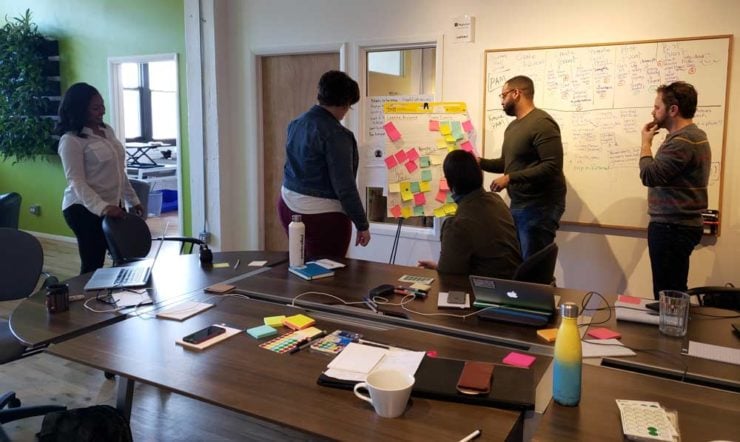
3. Do They Prioritize Collaboration and Shared Learning?
Good collaboration is hard. Most organizations don’t do it very well. However, collaboration expertise is critical for your agency partnership’s success. Understanding a potential partner’s collaboration and communications processes helps you build trust and manage expectations. These are critical to your shared success. Few things set up a project for failure faster than poor communication or a lack of effective collaboration.
Plus, ethical agencies also incorporate education and shared learning as part of the collaboration process. This ensures that project stakeholders are equipped with the skills and resources they need for ongoing success. It also helps everyone navigate the inevitable uncertainty that comes with any large project.
Questions to ask:
- What if we learn something new during the project that could change its outcomes? How do you approach that?
- Who on your team will be our primary point of contact? How often will we hear from them?
- What is their expertise? Are they passionate about the work they do?
- How do you foster ongoing collaboration on a project? What are your methods?
- How do you prefer to communicate with clients during a project? Which channels do you use (email, project management software, videoconferencing, phone calls, etc.)?
- Will we have regular check-ins? If so, how often?
- What sorts of training and educational materials will you leave with us as part of the project?
Regardless of whether or not your relationship continues beyond the first project, you want a partner that can help you build capacity, meet your long-term goals, reach desired outcomes and make a real, measurable difference. Good collaboration and shared learning are key components to this.
4. Does the Agency Use Open Source Tools and Practices?
Many agencies offer proprietary solutions that shackle clients to their products and services over time. If the relationship ends, it can be difficult, time-consuming, and expensive to untangle your organization from this arrangement or find another agency that specializes in the proprietary technology.
On the other hand, open source simplifies many of these issues. It also supersedes often uncomfortable conversations about rights ownership (more on that in the next section), which can delay or even cancel projects.
Consider asking these questions:
- Do you support permissive, copyleft, or other related open licensing agreements?
- Does your tech stack prioritize open source tools like Linux, Apache, MySQL, Drupal, WordPress, and others?
- Do you include source code or authoring files as part of your deliverables?
Open source tools and practices are more flexible and often more beneficial for all involved. Find an agency partner that is committed to these principles. Otherwise, you might regret it later.
5. Do They Offer Flexible Contracts?
Contract negotiations can be time-consuming, expensive, and eat into your overall project budget. Both parties want maximum flexibility with minimum risk. Flexible contracts can help with this.
Contract questions to consider:
- Do you have different contract templates for different types of engagements?
- Do you have a flexible contract or services agreement that will allow us to switch gears, if needed, at any time?
- Can we break a contract at any time? If so, what are the terms?
- Would you mind sharing an example contract with us?
With that being said, this is not legal advice. Consult a lawyer if you need legal assistance. 🙂
6. What’s Their Climate Policy?
Every year we funnel millions of dollars into ancillary services to support our business, including creative and marketing services. Every one of those dollars can either support an economic system that extends our dependence on fossil fuels or can help to speed the transition to a just renewable energy economy. There’s no better moment for responsible client-side businesses to look critically at their ancillary services and ensure that they’re aligned with a safe climate future.
— Kate Ogden, Advocacy and Movement Building Manager, Seventh Generation
Agencies with strong, clear climate strategies can guide your organization toward more ethical, long-term business and marketing goals that work better for people and our shared planet.
Good climate policies can also indicate whether an agency supports greenwashing or if they work with otherwise ethically questionable clients. This is especially relevant to social enterprises and environmental nonprofits, which are under constant scrutiny.
Questions to ask:
- Do they work with fossil fuel companies or have greenwashing campaigns in their portfolio?
- Has the agency declared a climate emergency and are they actively tracking and reducing emissions?
- Does the agency help other organizations meet their climate goals? If so, how?
There’s no need for your organization to get called out for poor agency partnership choices. Find an agency partner with clear climate goals.
7. Do They Have a Public-Facing Code of Ethics?
In addition to a Privacy Policy and other legally required documentation, responsible agencies should also prominently feature a public-facing Code of Ethics on their websites. At the very least, this code should include statements related to potential legal risks that could arise from your collaboration.
Questions to ask:
- Data privacy & security: Do they clearly understand current and emerging data privacy laws that protect client, customer, and user data?
- Accessibility: Do they adhere to evolving digital accessibility laws? Are these practices built into their process?
- Rights in materials: Do they understand and adhere to current copyright laws? This is especially relevant if they are going to create content on your behalf.
- Sustainability: Have they made appropriate climate-related disclosures? While this is not currently law in many countries, legislation is heading in this direction.
Many agencies don’t make these sorts of public claims on their websites. However, those that do should be prioritized as better potential partners.
8. Do They Provide Privacy-Friendly Alternatives to Big Tech Tools?
When we use Google or Facebook products for website analytics, surveys, social signup, or internal search, we are delivering data about our users to them.
— The Ethical Design Handbook, page 287
Big Tech tools often provide free access at the expense of personal privacy. This can be a big problem with current and emerging data privacy laws.
In particular, Google Analytics has come under extensive scrutiny. In fact, some European Regulators have claimed that specific configurations of Google Analytics are in violation of GDPR, Europe’s data privacy protection law.
Ethical agencies will recommend and implement more ethical alternatives to tools that could undermine user or customer data privacy. They will also provide data privacy checklists, templates, and other tools to help you maintain compliance over time.
Questions to Ask:
- How do they incorporate data privacy principles into client work?
- Do they offer more ethical alternatives to common marketing tools?
- Do they guide clients through incorporating data ethics into their marketing practice?
9. Do They Engage in Policy Advocacy Work?
Policy advocacy indicates that an agency takes their role in creating positive social or environmental impact seriously. We engage in advocacy to create the world we want. It is an important ethical business practice.
Questions to ask:
- Does the agency lobby for new laws or changes in existing legislation? If so, what causes do you support?
- Do any team members sit on nonprofit boards or serve as political advisors in any way?
- How do you show transparency in these efforts?
Look for specific petitions a potential agency partner has signed or collective action they have taken part in. While a section of their website might be dedicated to this, an agency will more often showcase this work via social media.
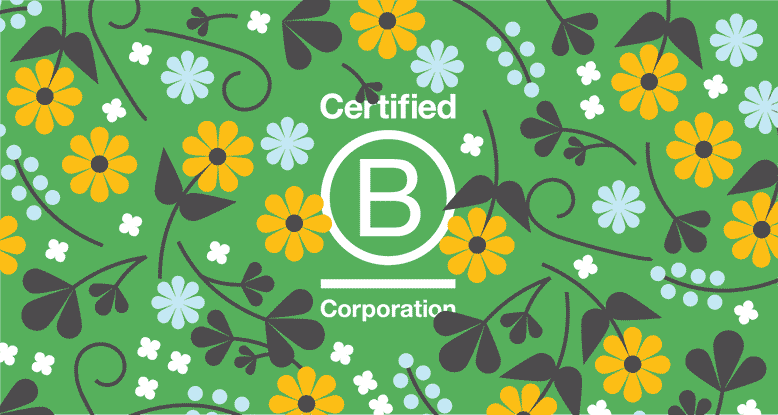
10. Has the Agency Earned Any Third-Party Certifications?
Finally, objective third-party certifications are one of the best ways to validate whether or not an agency adheres to responsible industry standards and best practices. We’re fans of B Corp certification, which is very rigorous and applies to any business. However, many others are available as well.
The U.S. Chamber of Commerce offers a small business certifications guide to help people better understand various certification types. You can also find a B Corp agency on B Lab’s website.
Ask the following questions:
- Business certifications: Does your agency have any third-party certifications that highlight ethical, responsible, or more sustainable business practices?
- Digital certifications: Has the agency certified its team in accessibility, data privacy, cybersecurity, or related digital disciplines?
- Minority supplier certifications: Is your business a certified minority supplier, i.e. women, LGBTQ+, veterans, or BIPOC-owned?
- Industry-specific certifications: Similarly, has the agency achieved any industry certifications related to their business? These could be advertising or marketing-specific or they could relate to a particular niche the agency focuses on, like architecture, healthcare, consumer packaged goods, and so on.
Often, an ethical marketing agency will list any third-party certifications on its website, as this helps to differentiate them. If individual team members possess industry-specific certifications, these are typically listed in their bios.
Finding a Good Ethical Marketing Agency Partner
What can we expect from an agency? It can’t be just ‘how to sell more product.’ It has to be a full range of services that help companies change their products and use less energy, so that when people are looking for advice from marketers, that you can connect them up to this bigger conversation. That you can advise them on a range of sustainability questions from the manufacturing right through to the communications, the sales and the corporate claims. It is part of the ESG package to offer these services.
— Sadhbh O’Neil, What Does the IPCC Report Mean for Brands and Agencies?
Finding the right agency partner takes time and a decent amount of work. However, a great partnership can make a huge difference in your organization’s success. This is especially relevant for purpose-driven organizations, where the risk of a poor decision is greater.
With that in mind, consider creating clear vendor vetting policies to reduce this risk, improve your supply chain, and forge mutually beneficial, long-term partnerships based on shared values.
Hopefully, this post can help you accomplish that. By doing the extra leg work up front, you will reap many benefits over time.

